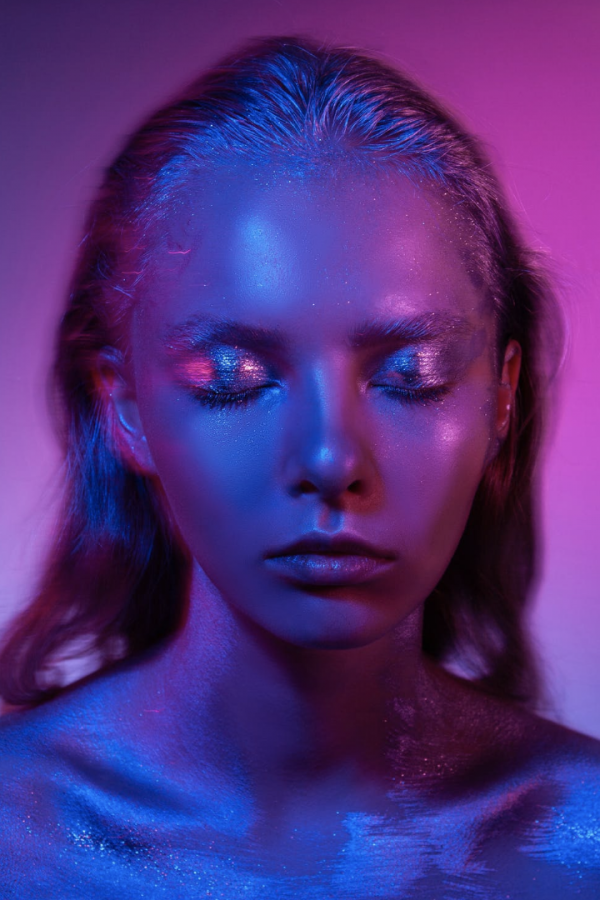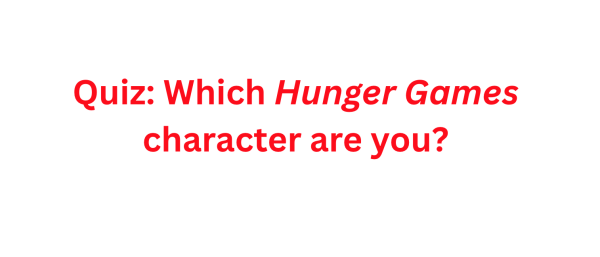Boobs, beauty and self-esteem
Image Credit: Daria Rem via Pexel’s Royalty Free Images
We need to broaden the conversation about women’s self-esteem issues and reform our mindset surrounding female biology and the psychology of attraction.
A woman’s relationship with herself and her identity has been at the center of hundreds of thousands of novels, movies, television shows and a variety of other media forms with the intent to unravel the complex relations between females’ perceptions of ‘self’ in relation to their inner and outer appearance. While oftentimes these portraits of femininity are created with good intentions, too often are they either made by males looking to exploit the female experience to line the insides of their own pockets and pose as an avant-garde “ally” in the “trend” towards feminism or they just simply miss the point.
One of the largest components of a female’s coming of age story is the idea of her building upon her own self-esteem and recognizing her worth. It is about connecting her attributes, corporeal and otherwise, with positive emotion. This task is rarely, if ever, a simple one, and a girl might oftentimes find that story at the mercy of other people’s comments and opinions, though not entirely. For a woman, it is typically a combination of internalized misogyny, historic rhetoric and surrounding imagery along with interactions with others. The problem with the portrayals of this journey in the media is that they do not successfully round out all of these components in a film, or they lazily focus on one and pass it off as “feminist,” which is an entirely separate conversation.
Yet besides all of that, I’ve always felt that the greater conversation we need to have is the following: why is a woman’s journey to self-acceptance still so difficult? I do not mean this in a way that undermines the complexities of mentality and appearance, but I’m rather wondering how women are still growing up in a world that is so suppressive towards womanhood that self-worth is a “discovery” and not the default, or that acceptance needs to be a “journey” as opposed to a possession? With such a larger amount of feminist sentiment than ever before, there must be a reason why so many women feel that they should feel self-conscious about themselves. But to whom/what do we point the finger at?
Obviously, we all have self-esteem — of varying levels. But we still have the foundation of which to build. And self-consciousness in the negative sense is something that we are taught to have, not something that we are born with. And yes, there is a positive way to be self-conscious. According to Healthline, “Self-conscious emotions develop in relation to an understanding of rules, standards and goals. Young children start to form a sense of self at around 18 months old. This is when self-conscious emotions start developing. Many children have a full range of self-conscious emotions by the age of 3.” What this means is that self-consciousness defines the attribute of simply being aware of yourself. Noticing how other people react to things you say or do or your sense of space in your surrounding world, and how you take it up.
Being self-conscious can be a good thing. When you become aware of yourself, you begin to learn how you can both positively and negatively impact other people’s emotions. This allows for people to become more constructive members of their community by developing sympathetic and empathetic tendencies, and are inclined to act in ways that people will respond positively too. That is the base of self-consciousness. Now, however, when you hear that term, you will often think of it in terms of your negative emotions towards yourself and your appearance, which just goes to show how our society is able to manipulate people into feeling bad about themselves.
We learn to feel negative emotions about ourselves from the things and people around us. You don’t see a 1-year-old or a toddler afraid to wear a swimsuit to the beach or run and dance around on a big stage. It’s when that toddler is told something mean about their body by a classmate, or sees an advertisement telling them what products they need in order to look a certain way, implying that that is the way they should look, and they begin to develop the idea that how they look is inadequate. It is then that they feel they need to change how they look to compare or appeal to the opinions of others. Negative thoughts about self are developed tendencies and are especially an issue amongst women.
According to the NCBI, women generally have lower levels of self-esteem than men. This correlates with the disproportionally larger number of women than men who also suffer from depression, eating disorders and suicidal thoughts/attempts. It’s important to understand the ‘why’ surrounding the self-esteem issues young girls face in order to best combat them. Part of what contributes to this might be the stigma surrounding the biological changes that women experience during puberty.
For one, periods are largely perceived as “gross” and are generally taboo. You can see this in the quiet tampon transaction. Asking another woman for a tampon in class or when out and about, whether it’s a friend or an acquaintance, is always a hushed engagement. And, if the girl you ask does have a tampon, the process of walking to the bathroom to employ it is often perilous, because what do you do with the tampon? Do you hide it in your sleeve? Stuff it in your pocket? And if you have a bulky pad? Forget it.
It’s strange if you truly look at it. Why should we feel ashamed to acknowledge the fact that our body is functioning properly and therefore we have to regulate it, much less be ashamed to ask another female for a period device? Short answer: you shouldn’t. It’s all a result of internalized shame women have felt they should feel towards their bodies. According to Tanya Baron, a journalist for the International Business Times, 800 million women are on their period right now, around 21% of the female population of the world. So, there’s a good chance that if you’re sitting in a room with multiple women right now, there’s a good chance at least one of them is on their period. Woah.
If you look at the history of periods, there’s no question regarding the evolutionary stigma. For one thing, the Ancient Romans thought that women who got a period were dark witches. Says Metro News online, “According to Pliny the Elder they could stop hailstorms, whirlwinds, and lightning, and kill crops.” 19th-century British people believed that if a woman on her period touched food, it would negatively interfere with its preparation, and Viennese scientist Bela Schnick believed women’s periods could stop “dough rising and beer fermenting.” During Medieval times, cramps were even seen to be religiously significant, as punishment for Eve’s original sin. So when we try to eliminate the stigma around periods, we’re working to rewrite a history that has time and time again ignored the science of the female body in favor of using its biology as a way to further suppress women. It’s no question that the conceptions of the period have clearly evolved into an insecurity or source of shame for developing girls.
For another, women seem to emotionally interpret their breast development based on how experiences of objectification from men impact them, as opposed to the science of it. Women would also feel insecure about their own breast size based on how they know that society reacts and feels regarding certain sizes. Logically, you don’t feel insecure about something unless you are given a reason to. For example, you might feel self-conscious about living in a smaller house because a larger house demonstrates wealth, and society sees that there is more dignity in affluence than poverty. But you likely wouldn’t feel insecure about sitting a brown chair versus a blue chair at school if they were randomly placed around the classroom with no special meaning designated to them. Implications make us feel insecure, not things.
A woman might feel insecure because of how her breasts look because we want to be the preference. Psychologically, we want to be desired. According to Marta Meana, a University of Nevada researcher, “the organizing principle of female sexuality is the desire to be desired. Female desire is activated when a woman feels overwhelmingly desired, not rationally considered.” If someone is jealous of you, it is validation that something you possess is desired, and, in a sexual context, women want to be desired by men. When someone is envious of us, it tells us that we are important, at least to someone, that we have something that is enviable which plays upon how humans want to feel in control or powerful. When we feel that we do not have that quality, we might feel insecure.
But this concept is so much more prominent with female development because of the sexualization of breasts. There’s internalized shame women feel regarding their size if they don’t believe that it is up to standards, whether their own or otherwise, as well as in the hypocrisy of men pressuring women to show them off and yet either men or other women shaming them if they do. That, along with the period taboo as well as the hush-hush surrounding female pleasure (ie: masturbation, sexual exploration, slut-shaming, etc.) add to the self-esteem disparity amongst men and women.
When you look at the differences in insecurity between men and women, it makes sense why women have greater self-esteem issues. After layers and layers of research, a woman’s most common insecurity is their sexual desirability. “Women, apparently, want most of all to be sexually desirable and are constantly measuring their own sexual desirability against that of other women,” says journalist Cynthia Wilson. For men, on the other hand, their biggest insecurity? While it might be shocking, it’s their penis. This includes its length, overall size, etc. You’ll notice if you look at this disparity, a woman’s biggest insecurity hinges on comparing themselves to other women in order to present themselves as more, or most, desirable to, likely, the opposite sex, or appealing to men. Men, on the other hand, their biggest insecurity relates to something that would ultimately enhance their own ego or self-esteem and is more of a personal insecurity of theirs that women don’t pay as much attention to. And in regards to their biggest insecurity, men are less likely to care as much as women care about their biggest insecurity.
Also, if you look at it statistically, 30% of men are unsatisfied with their penis size, according to men’s health, whereas 70% of women were unsatisfied with their breast size, according to a study done by David A. Frederick, Anne Peplau, and Janet Lever. Similarly, according to the same study, only 56% of men would describe themselves as ‘satisfied’ with the size of their partner’s breasts, whereas, according to researchers at UCLA, “84 percent of women feel “very satisfied” with their man’s penis size.” What can we conclude from this? Men are proven to care more about sexual appearances than women, which likely correlates to the insecurity disparity.
Why do we even care what other people think of us? Well, that’s something that can also be psychologically proven. According to Rachel S. Heslin, author of Navigating Life: 8 Different Strategies to Guide your Way, “Small children are not just learning how to walk and communicate, they are also trying to learn how the world works … we learn about who we are and what is expected of us based on interactions with others.” Heslin goes on to say, “To a four-year-old, if Mommy or Daddy doesn’t like you, there is the danger that they will abandon you, and you will die. We need to understand that when we desperately want someone to approve of us, it’s being driven by that little kid part of us that is still terrified of abandonment and death.” So we’ve evolved to care about what people think of us, to a certain degree, and that, specifically in regards to women, combined with the societal pressures women face, also has a large impact on self-esteem.
By now, you should have a pretty good understanding of the psychology and societal norms surrounding the ‘why’ as to why women seem almost forced into feeling self-conscious about their bodies and appearance. But there’s no use to any of that research if we can’t look to find ways to use it to change the narrative of women’s history so that women are more liberated within society to feel positive about themselves. How do we make high self-esteem something that is inherent, as opposed to that idea of a ‘journey’? The hardest years of puberty occur in high school, so in order to do this, to find this solution, I took a survey of around 110 Homestead men and women, from ages 14-18, to ask them questions about female appearance.
The most common compensation for a girl feeling negative about their appearance in high school? Makeup. While I didn’t talk very much about the evolution of makeup in the earlier paragraphs, one of the earliest instances of women using makeup was the ancient Egyptians, who seemed to use makeup to appease the Gods. Shocker. So even since thousands of years ago, makeup has been about pleasing. But I digress.
In my surveys, 70% of women reported that they felt more confident when wearing makeup than not. When asked why they wear makeup, the most common answers included those along the lines of not wanting impurities to show and wanting to look groomed. This is in line with the 46% of girls who said they wear makeup mostly to cover up acne/blemishes, as opposed to the 14% said it was to largely draw male attention. But when asked what about these impurities were negative, the most common response from women was that it made you appear less clean, whereas the most common response from men was that it was “normal”. The insight from this part of the survey goes to show that women use enhancements as a source of confidence, and are more likely to think critically about their imperfections than men, as they are more likely to dislike imperfections as a result of their appearance, whereas men tend to focus on the fact that well, it’s just normal.
65% of women also said that wearing makeup made them personally feel prettier, and 63% of women said that if they are hanging around a male they have feelings for, they are more likely to wear makeup. This could be based on the fact that 58% of women feel generally more judged if they do not wear makeup versus if they do. 65% percent of men and women also agreed that generally, society encourages women to wear makeup, largely in order to cover visible imperfections. Comparatively, 76% of women said that a male having a negative opinion about them would bother them, compared with 72% of women who said that another female’s opinions would bother them. According to the girls, 94% said that they did not care whether or not a girl wore makeup, though 84% of women admitted to having talked bad about another girl’s appearance, as opposed to the 56% of males that said that makeup makes them feel more attracted to a girl.
Data from this section generally leads to the following conclusions: one, though a woman might talk negatively about another girl’s appearance, they actually don’t care that much, and talking negatively might be as a result of feeling obligated to care as opposed to actually caring. Two, although the margin is small, women are generally more concerned with male’s opinions of them than other women’s. Three, women feel “prettier” and “more confident” by enhancing what they feel are their own favorite features. Men also generally seem to care more about a woman’s appearance than another woman would, and that pressure to please has had a profound impact on self-image and the idea of wanting to wear more makeup.
All of that is actual data from students at Homestead. This information isn’t just statistics in a research article: it’s a struggle for girls of all ages every single day. And stigma doesn’t just disappear: reading this article, while it may make you more aware, the information alone isn’t going to achieve the actual problem it aims to dissolve: destigmatizing the female development experience and allowing for the next generation to grow up in a society where they don’t feel the need to search for their own self-esteem. We need to find ways to combat the issue. And though such a large problem may seem as though it requires massive changes, it may ultimately start with the little things. Below are ways that I believe will ultimately lead to long term change in women’s self-image and self-esteem.
Make-Up: Girls, if you don’t actually care about how other girls’ makeup looks: don’t say anything. Just don’t. You’re not contributing anything productive to the conversation. And, as we saw in the above polls, most girls don’t care anyway, so there’s a good chance the girl you’re trash-talking another girl’s appearance who doesn’t actually care either. So just skip it. Talk about something else. And while it’s often taught as such, maybe, at home, we can teach make-up as more of a choice, not as a routine. Stress skincare first, makeup second.
Think Less About Breasts: Yes, it’s easier said than done. In an evolutionary sense, breasts, specifically fuller ones, signified a woman’s fertility. So it makes sense to a certain degree our sexual fascination with them. But its the year 2020. No one can control how much men look at breasts, and the solution isn’t necessarily to stop men from being attracted to a woman’s figure, because everyone does have different preferences. But let’s lessen the implications that come from breast size. What I mean by this is, for girls, we need to stop comparing our breast size to other women’s. Embrace the differences. Your femininity isn’t undermined by your lack of breast size.
Female Sexual Liberation: Here’s the truth, men are more aware of their sexual biology than women. Years ago, information about the clitoris was actually withheld from anatomy textbooks. And even still, sexual education in regards to a woman intimately exploring herself is beyond lackluster. Integrating masturbation for both genders as a part of the public school health curriculum would be extremely influential in allowing women to feel more comfortable with their bodies if they are able to explore it. While this is more of a radical change, the conversation can easily begin at home. Parents can talk about it matter-of-factly, just as you would talk about periods, shaving, and other aspects of puberty. It’s only an awkward conversation if you make it one. So don’t.
Destigmatize the Period: What does this mean? Talk about it. Don’t hide it. If you’re a teacher, maybe have a brightly colored jar or box on your desk or somewhere in your classroom and fill it with tampons or pads. Encourage girls to take one when they need one, and make less of a show about bathroom permission when it’s very obvious the reason they’re going. Leave it out in the open. Let male students see it too, maybe even put it in a place where they’re forced to see it at some point or another. Make it just a thing that’s there, like a tissue box. In essence, they do the exact same thing, so why not? And for parents: drop the phrase “don’t talk about that when your father is around” or “he won’t want to hear about that.” It just pushes the idea that men would rather remain oblivious to a female’s biology and would not be willing to be accepting. Don’t force your daughter to talk about it in front of anyone, but let her know it’s okay. The first boys that a girl interacts with are typically their dad, brother, etc. Teach these boys to be accepting, and normalize period conversation regardless of which gender the audience is.
In conclusion: women deserve to feel the best they can about themselves, their bodies, and their appearance. We need to begin to erase the centuries-old stigmas surrounding our biological and physical attributes and focus on future progression. This starts with education and overall reform: reforming curriculum, reforming mindset, reforming attitude. And, as women, we need to form a strong community of support for one another. The radical societal change we rave would move much faster if we women, specifically girls at Homestead, supported each other in a more open way. Self-esteem should be the expectation and its time to change our ancient mindsets.

Alexandra Grosso is a junior at Homestead who was been writing for the Highlander Online for the past three years. She is best known for her articles on...












Maddy McDonald • Feb 10, 2020 at 12:27 pm
very good, very much adequate